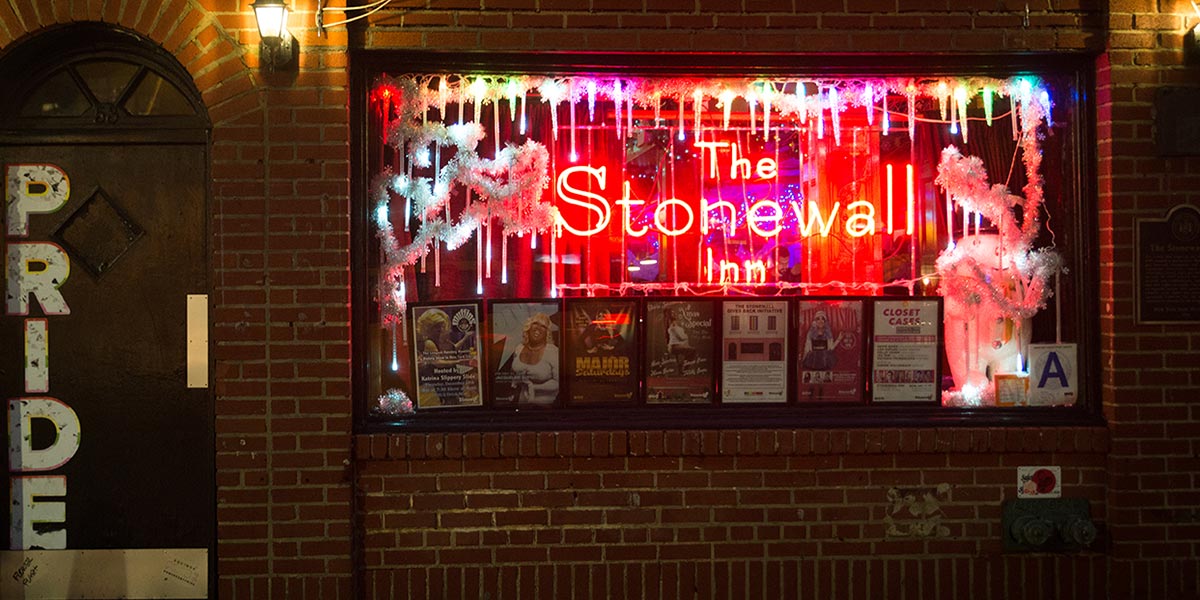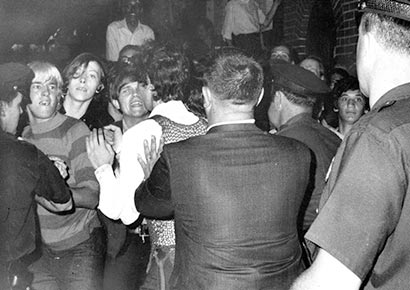Why the Stonewall Riots still matter 50 years on

Pic: Dev Chatterjee / Shutterstock
The world this month celebrates the 50th anniversary of the Stonewall Riots, seen by many as the start of the LGBTQ+ rights movement. We look at why this historic event is still relevant today.
The anniversaries of important historical events are opportunities for reflection on the way they affect us today. More often than not, these events changed the way the world is in some significant way. One example is what we now call New York City’s Stonewall Riots.
Also referred to as the Stonewall uprising and the Stonewall rebellion – the names suggest a challenge of the status quo in a way that is meaningful and important. There are many factors that are cited as the run-up to what would ultimately culminate in the protests that would lead to the first Pride parades, and the declaration of the month of June as Pride month.
Depending on who you ask, they might say it all started when a transgender woman threw a glass or a brick, or used her handbag to hit a policeman in the early hours of June 28, 1969. The Stonewall Inn, a seedy mafia-owned bar that served watered-down drinks to its mostly LGBTQ patrons had been raided by police officers in plain clothing just after 01:00 in the morning.
The Stonewall Inn was among just a handful of establishments that catered to LGBTQ people at the time, and the only bar for gay men in New York where dancing was allowed.
Stonewall, however, was just the crescendo in a defiant chorus that had been growing steadily louder for ages. The American Psychiatric Association had listed homosexuality as a mental disorder in the Diagnostic and Statistical Manual in 1952, but sodomy, other homosexual acts or other behaviours deemed “unnatural” had been regarded as criminal for centuries before, both in the United States and across the rest of the world.
The raids happening at Stonewall were also being conducted on other bars and establishments known to open their doors to the LGBTQ community in America. Typically, they would entail police officers arresting suspected homosexuals – their names being plastered across newspapers, their chances of accessing employment ruined, their reputations destroyed. This was a time when LGBTQ people were demonised, called perverts who did not have the same emotional stability as “normal” people, and labelled security risks.
Organisations that consisted of activists of the cause were formed in the years leading up to Stonewall, but their protests were organised, controlled and patient. For centuries, LGBTQ people had been hearing they were unstable, subhuman criminals. Something had to give, and on 28 June, 1969, it finally did.
It turns out the collective patience of an entire minority group would run out when what was supposed to be a routine raid turned into a riot. By all accounts, stones, bricks and glasses were thrown by a growing group of protestors in the streets of Greenwich Village in New York City. But the protest also had a kickline and songs; Judy Garland’s funeral was held just down the road the day before, after all.

The Stonewall Riots (Pic: Wikipedia)
The protests lasted a few days, but changed the face of LGBTQ activism forever. Numerous organisations that fought to advance the rights of gay people were formed, and existing organisations thrived.
On the first anniversary of Stonewall, the very first Gay Pride marches were held in Los Angeles, Chicago and New York. 50 years after Stonewall, thousands of cities across the world now have annual events where the LGBTQ community marches in solidarity.
In a sign of its significance, President Obama proclaimed the Stonewall Inn, which remains standing today, a national monument in 2016; the first ever LGBTQ national monument in America.
This year’s WorldPride celebration in New York City spans the entire month of June and culminates in a march that is expected to be millions strong. The rights of the global LGBTQ community are expanded across the globe every year, even though there is still much work to be done.
The month is a time to reflect on the role that Stonewall played in galvanising organisations and inspiring the global LGBTQ community as a whole to have the strength to fight for rights that equal their straight and cis counterparts. They’ve – we’ve – come a long way. Stonewall inspires us to gather around one another and be patient when patience is fair, but also reminds us that patient inaction sometimes needs to turn to targeted protest against the status quo.
These days, intersectionality is highlighting the way in which the struggles of one group tie in with the struggles of another. At the same time, there is a growing global nationalist movement that tries to zero in on the ways we are different. The Stonewall riots matter because they remind us that the only way forward is together – and if we’re moving forward in a kickline, all the better.
Leave a Reply